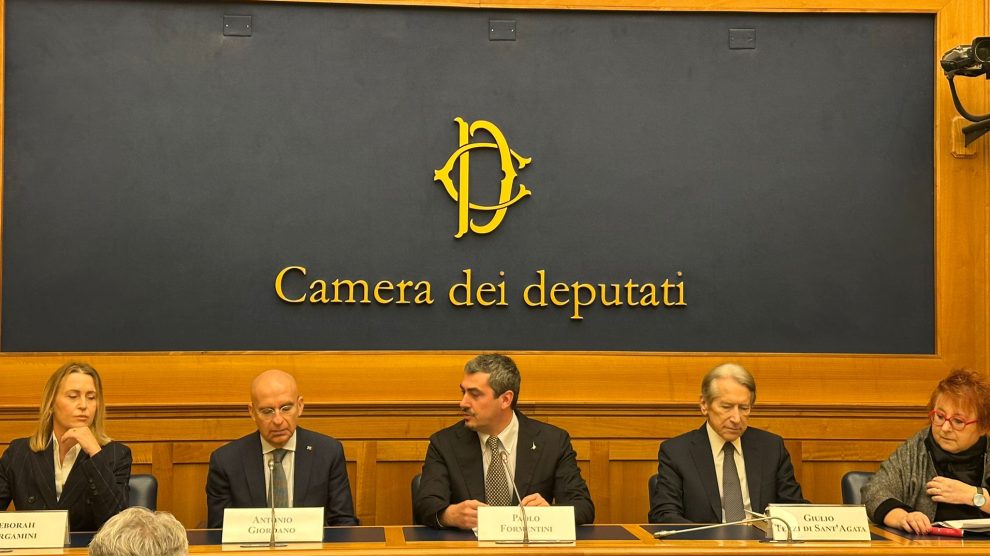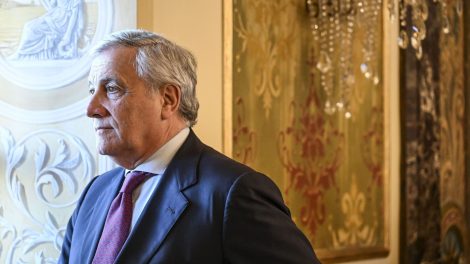The event signals three trends: cross‑party alignment in Rome, strong diplomatic attention, and a growing role for parliamentary diplomacy in Italy’s foreign policy.
Decoding the news: The presentation brought together MPs across parties and diplomats from Cyprus, France, India, Egypt, the U.S., Jordan, and Germany — underscoring that IMEC is viewed not just as a multimodal corridor but as a geopolitical platform shaping energy, maritime security, and Euro‑Indo‑Mediterranean cooperation.
- Paolo Formentini (Lega), co-chair of the intergroup, called IMEC “a dream of peace and stability,” recalling that Parliament began tracking the project weeks after October 7, as regional destabilisation unfolded. The next step, he said, is to tighten links among the legislatures of participating countries and to encourage the creation of similar IMEC groups abroad.
- Antonio Giordano (Fratelli d’Italia), the other co-chair, pointed to the strong diplomatic turnout as evidence of IMEC’s geopolitical weight. He framed the corridor as a strategic counterweight to China’s Belt and Road and Russia’s push for Arctic routes.
Parliamentary diplomacy steps forward:
- Deborah Bergamini (Forza Italia), who leads the IMEC Committee in the Chamber’s Foreign Affairs Committee, argued that IMEC’s value is inherently strategic. With multilateralism under strain, parliamentary diplomacy is essential to coordinate institutions that cannot operate in isolation.
- Senator Giulio Terzi di Sant’Agata (FdI), chair of the Senate EU Policies Committee, placed IMEC within the broader Indo‑Mediterranean framework — a space connecting Europe, Asia, and Africa. IMEC, he said, can help break old East–West and North–South divides.
- Giulio Centemero (Lega), speaking for the Parliamentary Assembly of the Mediterranean, stressed that no corridor toward Europe can function without structured dialogue among all Mediterranean shores.
The Indo‑Mediterranean vision. In a video message from Japan, Amb. Francesco Talò, Italy’s Special Envoy for IMEC, emphasised:
- Trieste as a potential European terminal;
- The need for close cooperation between institutions and the private sector;
- Diversification of routes and supply chains “in an interdependent system”;
- The Indo‑Mediterranean as a space of European freedom and connectivity;
- He also highlighted Parliament’s central role in shaping the project.
Regional security and Middle Eastern integration.
Speaking from the floor, Israeli Ambassador Jonathan Peled framed IMEC within shifting regional dynamics. The recent Gaza truce agreement, he said, opens a new chapter moving from emergency management to reconstruction — with IMEC as a core component. Citing the Trump Plan, he argued that economic prosperity is integral to peace, stressing that Israel and Jordan must be included because most commercial flows would transit there. He tied IMEC’s success to the expansion of the Abraham Accords and the need for a credible regional security architecture.
- Egyptian Ambassador Bassam Essam Rady echoed that message, stressing the importance of a stable security environment.
- He highlighted the centrality of the Suez Canal — whose throughput would rise with expanded Euro‑Asian connectivity — but warned that no corridor can function without peace.
- The Houthi attacks in the Red Sea, he said, expose the fragility of global geoeconomic routes.
- Cypriot Ambassador Yiorgos Christofides reiterated Nicosia’s interest in joining IMEC.
- With Cyprus set to assume the EU Presidency in a month, he said the Mediterranean focus of that term will advance only in partnership with Italy — including on projects like IMEC.
India’s strategic anchor role. Indian Ambassador Vani Rao underlined the bipartisan nature of Italy’s support. IMEC, she said, brings together connectivity, maritime security, and energy transition — all strategic priorities for India. She welcomed the EU’s India Strategy, which identifies IMEC as a core pillar of future cooperation.
Trieste as Europe’s gateway. Wrapping up, Senator Tatjana Rojc refocused attention on the territorial dimension. Trieste, she said, will need to address logistical, regulatory, and port-related challenges to become a competitive Adriatic hub and one of IMEC’s main European entry points.
The bottom line: The launch of the IMEC intergroup marks a political step that goes beyond traditional diplomacy.
- With cross‑party backing, strong diplomatic engagement, and growing Indo‑Mediterranean interconnection, Italy is positioning itself as the political and logistical anchor of IMEC’s European leg.
- Upcoming diplomatic engagements — from Saudi Arabia to India — will show how fast Rome intends to accelerate this new strategic connectivity platform.





